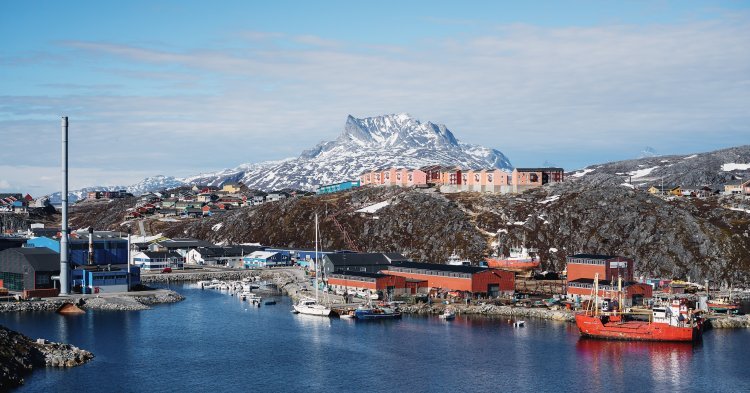US President Donald Trump had wanted to visit Denmark in early September 2019, but it was not to be. After his proposal to buy Greenland, Danish Prime Minister, Mette Frederiksen, replied that she hoped the US President’s offer had not been serious. For Trump, this constituted an “inappropriate” and “mean” treatment of the United States, which led him to unceremoniously cancel his visit. The fact that Greenland has been largely self-governing since 2009 and that Denmark has no authority to cede it to the USA makes the situation seem all the more grotesque.
But even though Trump’s discussion led to some amused and outraged reactions from politicians and the media, he is the not first US President to express an interest in Greenland. In 1946, Harry Truman made an offer of US$100 million in gold in exchange for Greenland – an offer which the Danish government also rejected. Already at that time, Greenland, which has been part of Denmark since 1933, was of a high interest both due to its strategic position in the Arctic and due to its resources. Trump has brought this issue back into the public eye. Other states are also trying to position themselves for the race for the coveted resources, which could turn the Arctic into an area for potential geopolitical conflict in the future.
The political status of the Arctic is unclear
The status of the Arctic is both unclear and problematic. In contrast to the Antarctic, which has already been designated as an area to be used for research purposes only until 2041, it is subject to no such agreement . Under current legislation, the area surrounding the North Pole is too far from the mainland to be owned by a state and is therefore considered autonomous. However, according to the 1982 United Nations Convention on the Law of the Sea, oceanic coasts have the right to exercise limited control over an area up to 200 nautical miles (370km) from the coast. Under this agreement, the USA, Canada, Russia, Denmark, and Norway can all lay territorial claims on parts of the Arctic. In this context, bordering states are states that border on a geographical object, such as Greenland. Provided that the territorial claims are deemed lawful, the agreement grants these states special rights to the seabed and underground resources.
With the exception of the United States, which has not yet ratified the agreement, all neighbouring states have registered claims to extended parts of the continental shelf and thus larger portions of the Arctic. But what makes this region, currently largely covered by ice, so attractive?
The ice is melting…
In no other region in the world is climate change progressing faster than in the Arctic. 50 years ago, its ice sheet was twice as large as it is today. Its thickness has also halved since then. In 1979, the area covered by the ice made up an average of 7.5 million kilometres squared, compared to 4 million kilometres squared in 2016. Greenland, which is home to the world’s second-largest ice sheet after Antarctica and the largest glaciers in the Arctic region, shows a similarly dramatic development. While the ice masses there increased by 47 gigatonnes per year between 1972 and 1980 - which corresponds roughly to the volume of Lake Constance - Greenland lost 286 gigatonnes of ice per year between 2010 and 2018. The loss of ice has thus increased almost sixfold since 1980 and has become more dramatic than in the Antarctic. A development which, in view of the weather extremes in Europe and the rising sea level, would have to call the international community to account if there were no other side of the coin.
… and giving access to resources
The melting sea ice makes the possibilities of commercial use of the Arctic Ocean more and more tangible. It is believed that 30% of the world’s gas reserves and 16% of its oil lie hidden beneath the Arctic seabed. Additionally, it is thought that there may be deposits of rare metals such as tin, manganese, gold, nickel, lead, platinum and rough diamonds. The Arctic fish stock is also of considerable economic importance.
Researchers also suspect that new shipping routes, such as the Northeast and Northwest Passage could be ice-free in as little as 20 years from now. This would shorten trade routes between Europe and Asia by 40%. If this proves to be true, we are talking about a billion-dollar business opportunity in the Arctic, which makes clear why the neighbouring states are trying to stake their claim to a piece of the Arctic pie.
The USA in particular, which only has a short coastline to the Arctic with the state of Alaska, could stand to significantly increase its influence in the region by purchasing Greenland. Russia also regularly conducts military exercises in the area. As a result, the Danish government has announced that it will increase its navy presence around Greenland. China maintains geological research stations in the island of Greenland to look for the suspected rare materials. Germany also has an interest in the issues surrounding the Arctic, not least because Denmark, as an EU member, is directly affected. The Germans have a seat on the Arctic Council, a forum which deals with security and climate protection in the region. Against this backdrop, Germany’s Federal Cabinet recently presented the guidelines of German Arctic policy.
Taking responsibility
The paper, which was adopted on 21st August 2019 and written under the guidance of the foreign ministry, covers the issues of environment, defence, transport, research, nutrition, agriculture and economic collaboration and development. The wealth of topics covered points to the increasing importance of the Arctic for Germany. The German government is aware of the economic potential that of the newly available resources in the Arctic and is planning to promote free shipping in potential new routes. The 20-page paper states that "the development of Arctic raw material sources, which has already begun, can contribute to energy and raw material security in Germany and the EU”. However, the German government insists on an environmentally friendly and sustainable use of the region. It is also important for the government to protect the interests of the indigenous peoples in the Arctic.
Germany is urging all states to respect international laws regarding, for instance, shipping, and demands a new agreement to supplement the 1982 Convention on the Law of the Sea. This planned agreement aims to guarantee the sustainable exploitation of the Arctic outside the sovereign territories of the five neighbouring states. The paper illustrates that Germany strives for an active EU policy plan for the Arctic and a greater integration of the area’s strategic considerations into EU policy - one which balances economic potential and ecological risk.
It remains to be seen whether Germany’s position will appeal to the rest of the EU and what weight Germany’s voice carries in the Arctic council. The German government maintains that binding rules for the Arctic are necessary to enable sustainable and ecological use of the region while minimizing the risk of territorial disputes. Canada and Norway have already indicated their willingness to discuss common solutions for the Arctic’s ecosystem, which plays a key role in regulating the Earth’s climate. Whether Donald Trump holds the same view is still unclear. But his initiative, intentionally or not, has undoubtedly moved the issue into the public eye.


Follow the comments: |
|
